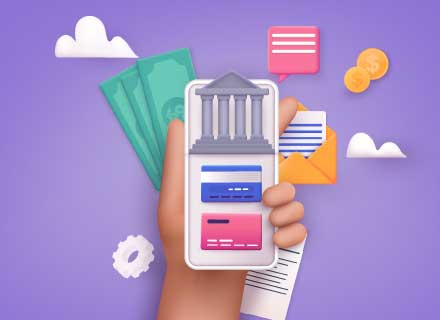Opening a bank account should be at the top of an individual’s priority list, when it comes to fulfilling his/her financial goals and managing their money better.
When it comes to opening a bank account, one can get easily discouraged by the prospects of paying a branch visit, standing in the queue and undergoing a lot of time-consuming paperwork. However, 21st century financial institutions are aggressively expanding their footprints in the digital space and due to this, opening a bank account takes just a few quick clicks on smartphones.
Talking about bank accounts, we have Checking Accounts (deposit account that allows its holder to easily make deposits and withdrawals), Savings Accounts (interest-bearing deposit account held at a bank or other financial institution), Money Market Accounts (accounts offered by banks/credit unions, which provide the benefits and features of both savings and checking accounts), Certificate of Deposit Accounts (savings account that holds a fixed amount of money for a fixed period of time) and so on. Also, it’s easier to get loans from the same bank where you have your accounts.
There are some crucial terms that one needs to be aware of, when it comes to pulling off daily banking activities.
Automated Clearing House
This is an electronic funds-transfer system that facilitates payments within the United States and internationally. Most credit/debit transactions can be made through the ACH during the same business day. However, even though the process may look like a quick and easy one, when it comes to money transfer, banks can impose fees on the process, apart from limiting the amount that an individual/entity can transfer on a daily basis.
Wire Transfer
The process is an electronic transfer of funds through a network administered by banks/transfer service agencies around the world. Under wire transfers, individuals/business entities can send and receive money digitally. All they need to do is submit the details of the party initiating the transfer, along with the receiver’s name and account number.
Credit Card Balance Transfer
Under this process, consumers move the amount they owe to a credit card with a significantly lower promotional interest rate and better benefits, such as a rewards program to earn cash back or points for daily spending.
Prime Rate/Base Rate
The prime rate is the interest rate that banks in a country charge their most creditworthy customers. The prime rate, often referred to as prime, is the most commonly used benchmark used by banks/lenders when setting their interest rates for various financial products like credit cards and home loans.
Credit History
This term is very important for individuals/businesses having accounts and loan commitments with the same bank. Credit history is the report on the repayment of debts and demonstrated responsibility in repaying them. A credit report contains details like the number and types of credit accounts possessed by individuals/businesses, how long each account has been open, amounts owed, the amount of available credit used, whether bills are paid on time, and the number of recent credit inquiries, along with information on bankruptcies, liens, collections, or judgments.
Collateral
This one is closely associated with ‘Credit History’. Collateral is a valuable asset that a borrower pledges as security for a loan. If a homebuyer is obtaining a mortgage, the home serves as the loan’s collateral for the loan. For a car loan, the vehicle becomes the collateral. For businesses, valuable equipment/real estate owned by commercial entities becomes their collateral. In the event of a default, the lender can seize the collateral and sell it to recoup the loss.
Loan Application Fee
This fee is charged to a potential loan borrower for processing and underwriting a loan application. Loan application fees, required for all types of loans, are intended to be paid for the costs of the approval process.
Know Your Client
Know Your Client/Customer (KYC) is a standard in the banking and investment industry, where the financial institutions and advisors, during their client onboarding process, need to verify the customer’s identity, his/her investment and financial profile. Basically, the process is all about verifying the client’s identity when opening a bank account. However, till a few years back, KYC was considered to be a time-consuming one, due to the heavy amount of paperwork required during the process. The 21st century financial institutions have solved the process by making the whole process a digital one on their banking apps.
Annual Percentage Rate
This refers to the yearly interest generated by a sum that’s charged to borrowers or paid to investors. APR is expressed as a percentage that represents the actual yearly cost of funds over the term of a loan or income earned on an investment.
Overdraft Fee
This is basically a loan provided by a bank that allows a customer to pay for bills and other expenses when the latter’s account balance reaches zero or the ‘Insufficient Stage’. The facility will come along with a one-time funds fee and an interest on the outstanding balance.

